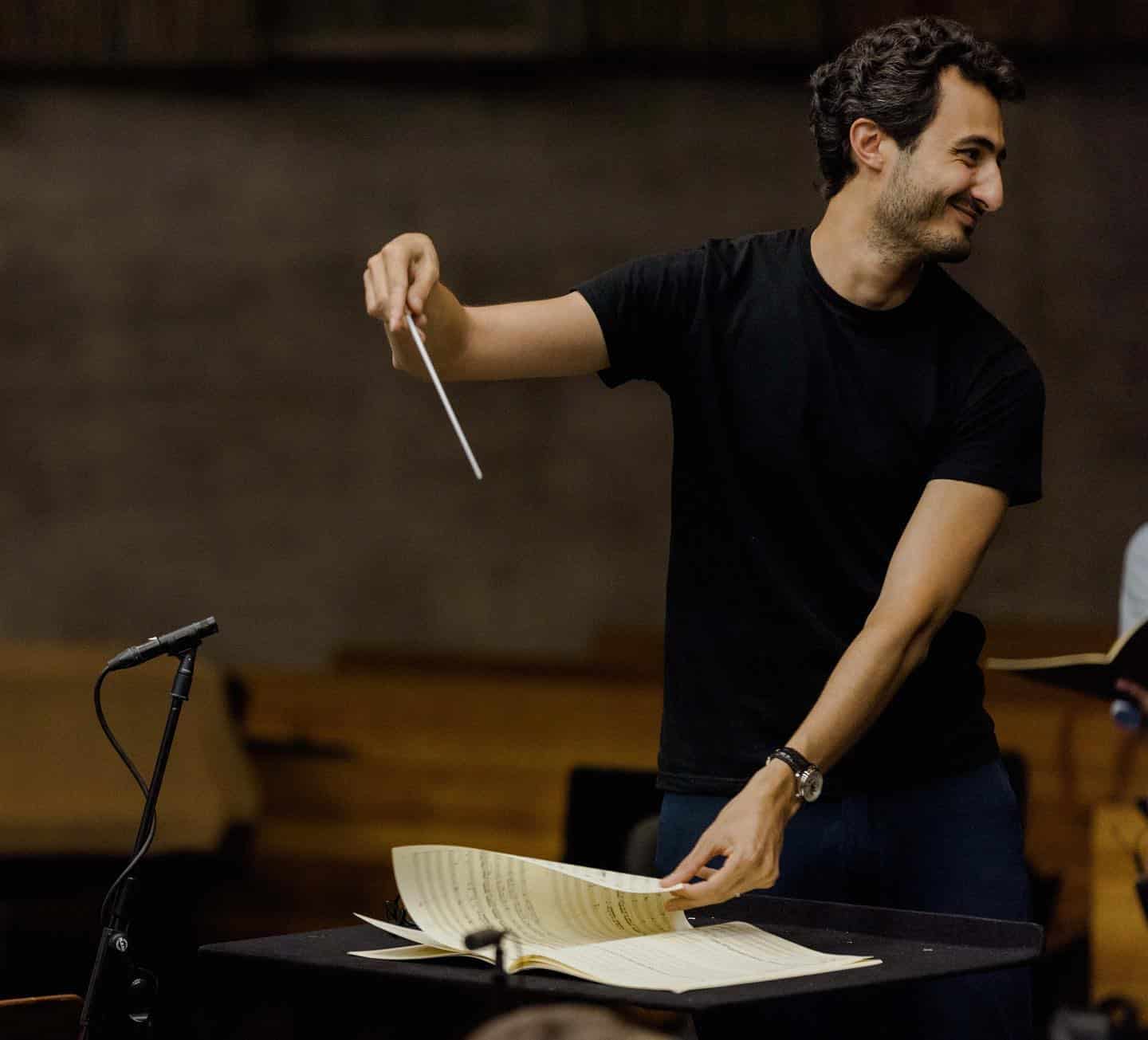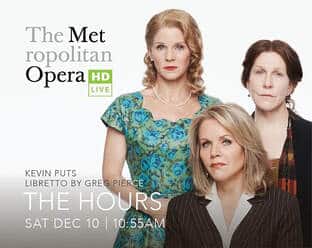Sellout at the BBC Philharmonic. Next stop Radio 3?
mainThe BBC’s Director of Music, Bob Shennan, has lost no time in attacking the culture of its orchestras.
The new season of the BBC Philharmonic Orchestra will feature a reassembled Culture Club with the exotic pop star Boy George and (less offensively) the chart-topping dance act Clean Bandit (which used to be an authentic string quartet).
The pop acts are ‘designed to broaden the appeal of orchestral music’. The BBC Phil is under a yet-unspoken threat from BBC cuts.
Shennan said the new season would ‘showcase some wonderfully diverse music to our audiences.’
‘Wonderfully’, ‘diverse’ and ‘broaden’ are code words for BBC multicultural mashdown.
Translated into plain English: Classical music is a yawn.
No wonder Roger Wright had to go. He was a doughty defender of the integrity of orchestras.

UPDATE: The BBC responds:
This is the third in the series of Presents, when the Phil collaborates with artists and presenters from lots of different genres and BBC networks. These have in the past included live concerts of iconic film music on Mayo and Kermode’s film review on Radio 5 live, a premiere of Californian composer Steve Mackey’s extraordinary Dreamhouse for BBC Radio 6 Music, a Dubstep symphony by Nero for Radio 1, as well as performances with Mercury prize winners The XX and with songwriter Richard Hawley. The plans for the 2014 Presents have been in the offing for many months, certainly prior to Roger’s departure, who also oversaw the series in 2011 and 2012.
Indeed he did. But not with a comment that suggests the orchestra cannot survive without pop add-ons.





The BBC Phil have been involved in this kind of collaboration for years. The XX, Richard Hawley, Elbow, Nero. It’s hardly a change of strategy – just a lazy press release. And no different from similar developments at the Proms initiated by Roger Wright (look at this year’s season for example – Rufus, Paloma, Laura, PSB etc).
Has it worked?
As your correspondent Tim says, it depends on the nature of the collaboration. The relationship between Joe Dudell ( a serious published composer and protege of the great Steve Martland) and Elbow was original and stimulating. Turning the BBC Phil into a backing band for anodyne chart artists is another matter. But Norman is correct to detect the influence of the new BBC Director of Music – someone with no knowledge and track record in the concert hall, opera house or recording industry. After forty years in the business I can find not a scintilla of evidence that this kind of cynical opportunism does anything to increase or diversify audiences. Much better for the Phil to collaborate with the visionary Alex Poots and the Manchester International Festival.
You are so far off the mark with this daily mail type headline. The BBC Phil Presents series was originally a festival to celebrate the orchestra moving into its new studio in media city with the objective being to appear live on every BBC radio station, not just Radio 3. Such was the success that it being brought back a third time. These are two concerts out of a probable seventy or eighty that an orchestra will do in a season so what’s the big deal? If it brings some new audience members or appreciation to classical music and radio 3 and in turn raises an orchestras profile and income are you saying its a bad thing?
Why all the preoccupation with “new audiences”? What about the music itself, and, for that matter, about the performers and about the existing audiences? Nobody would suggest that alcohol should be served in mosques to broaden their appeal, because that would undermine a fundamental precept of the religion in question.
I am gravely concerned that, in this obsession with what a bunch of influential marketing hacks arbitrarily *think* would interest “new”, “young” audiences, the BBC and many other organisations are losing sight of their artistic objectives. Yes, I realise we all do a bit of “bums-on-seats” programming, but it should remain of the highest quality, as opposed to devising a mediocre hodge-podge featuring some momentarily fashionable charlatans as soloists. I am not against “crossover” collaborations per se, but I am against mediocrity and unimaginative programming (and this includes the incessant recycling of a very small repertoire, no matter how good the pieces are).
What is really problematic is that there are very few places left for those of us, both young (yes, some of us are young!) and old, who value serious classical music without the incessant tweets and patronisingly infantile presentation. Radio 3 has *already* sold out, for the most part, yet we are left with no alternative, because we are not an attractive commercial proposition (most of us are *not* affluent, believe it or not), and there are no non-profit organisations with both the expertise and budget of the BBC to fill the void.
But my biggest sympathy is for our incredibly talented, overworked, and underpaid orchestral players — they are the ones who actually have to share the stage with Mr Bean et al., when they could be making far greater music.
As a matter of fact it hasn’t. What’s more it is lowering the level of quality of the full orchestra… just listen to the proms on Youtube
To be fair, this is in the context of a season that also includes a major David Matthews premiere, plus Schoenberg’s “Pelleas”, and works by Takemitsu, Gerhard, Kurt Schwertsik, Colin Matthews and HK Gruber, as well as a “Fidelio” with Juanjo Mena and a complete Nielsen symphony and concerto cycle. They’ve just finished a season-long retrospective of the Manchester School: Goehr, Birtwistle, Maxwell Davies, McCabe, and others including Emily Howard, Anthony Payne and Gary Carpenter. Glanert, Casella, Foulds and Dallapiccola have all featured in recent seasons.
Few regional orchestras programme more imaginatively and bravely – and that includes their popular collaborations, which as the commenter above remarks, they’ve been doing for a long time and to a high artistic standard. In a major creative centre like Manchester that’s a vital part of the cultural mix.
Yes, of course the BBC do some sterling work, but why is it not promoted more heavily? It seems almost like a self-fulfilling prophecy: Radio 3 bangs on incessantly about its stupid 10 Pieces That Define Classical Music that are to be televised in cinemas around the country, but (with the honorable exception of the excellent “Hear and Now” programme, broadcast late at night, of course!) rather neglects to promote the works off the beaten track, the result being that the latter remain off the beaten track. This enables a gang of executives with very limited musical taste to use the resulting audience figures to “prove” that the BBC needs more gimmicks.
This comment implies there is a demonstrable connection between audience members who turn up to hear the various bands performing with the BBC Phil, and their later engagement with classical music and radio 3. There isn’t. No one who turns up to Culture Club with the Phil or similar walks out the door saying “great, must go to their Sibelius cycle”. The only purpose of such concerts is to engage a different audience which, overall, makes the audience figures across the whole season look better. It’s cynical programming. Just like the Proms – the more light, popular rubbish you chuck into the season, the better your overall ticket sales look.
So are orchestras required by law to adhere to only one area of repertoire? Are collaborations with non-classical artists to be justified only as a means of luring/driving listeners towards classical repertoire? Is one audience’s enjoyment somehow less valid than another’s?
I fail to see why seeking to engage different audiences with different repertoire is “cynical”, or why collaborating sincerely, and to a high artistic standard, with non-classical artists is “cynical”, and I don’t see why any one genre of music has a monopoly on artistic quality. You mention the Proms: would you say the work of the John Wilson Orchestra is “light, popular rubbish”? Or Laura Mvula? Or the Pet Shop Boys? Why?
Performing Beethoven 9 on a single 3-hour run-through with an orchestra full of substitutes; record labels that sell full-price opera CDs without librettos; piano competitions with rigged juries; star conductors on huge fees who farm out rehearsals to assistants and jet in on the night to wave a stick – now that’s “cynical”.
I agree absolutely, and also would like to ask Norman how this post sits in relation to the (I believe absolutely spot on) sentiments he expressed in his impromptu interview for Classic FM: “Every label you attach to music diminishes it. Genre is history. People in the 21st century talk of ‘my music’, not some marketing category”. – See more at: https://slippedisc.com/2014/07/what-to-say-when-youre-asked-is-classical-music-dying/#sthash.VG9di9Sj.dpuf
Can the BBC Phil survive even with pop add-ons?
What purpose does it serve, in a BBC which has more orchestras than it needs, or in a Manchester which already has the Halle, and with RLPO to one side and Opera North to the other?
I cannot speak for the new chief conductor, but with Noseda for many years they were a damn sight more exciting musically than the BBCSO in London with Belohlavek. And, frankly, more committed and looked less bored than their London colleagues. That doesn’t answer the question as to their purpose in Manchester, but if artistic merit had anything to do with it…
I heard them under Mena last month, in an-British programme. They were bright, alert, playing with enormous gusto and clearly hanging on Mena’s every gesture. It’s a wonderful partnership, and Mena is a fascinating conductor – superb in Bruckner, but on this occasion also delivering a really fresh and insightful account of the Moeran Violin Concerto, with Tasmin Little. He’s an inspired choice of successor to the much-missed Noseda, IMHO.
Mena’s televised prom of Mahler 5 was fantastic- committed and very moving. Their relationship with Mena is obviously an excellent one. Any job has its boring or difficult moments, and the occasional concert with Boy George or whoever cannot be that bad for them (esp if it keeps the execs happy and the orchestra going). Yes, we may have too many orchestras, but they all have a history and current standard we can be truly proud of- long may they continue.